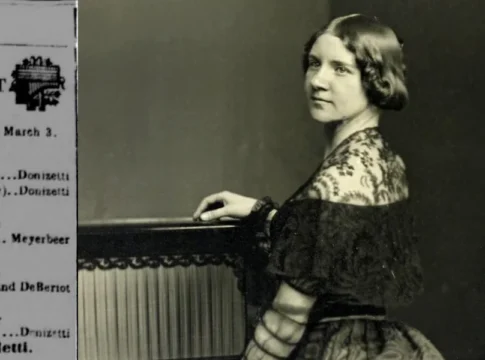 Photo: Public domain
Photo: Public domainJenny Lind: The nightingale of Stockholm
Explore the captivating journey of Jenny Lind, a remarkable Swedish opera singer who soared to international fame, embodying the beauty…

When visiting Stockholm, a city known for its rich tapestry of history and culture, be sure to look into the fascinating life of Oscar II, Sweden’s last reigning monarch with real political power. His reign, which lasted from 1872 to 1907, saw significant political and cultural changes in Sweden. Explore his legacy and uncover a story woven with ambition, innovation, and diplomacy.
Oscar Fredrik, King Oscar I and Queen Josephine’s third son, was born in Stockholm on January 21, 1829. He received an education in languages and sciences before embarking on a naval career in which he developed leadership skills that would later define his rule. Following the death of his brother, King Karl XV, Oscar II ascended to the throne and became King of Sweden and Norway.






During his reign, Sweden and Norway moved toward more democratic systems. Although Oscar II initially opposed radical changes, his reign saw significant political reforms that paved the way for greater political inclusion and citizen participation.
Suffrage and Political Progress: While King Oscar II was not completely opposed to democracy, he was cautious and resisted the rapid expansion of democratic reforms during his reign. He was a monarch who held a traditional, conservative view of royal authority, making him wary of the growing democratic movements in Sweden and Norway.
His stance changed over time, though. His opposition was motivated more by protecting the monarchy’s role and maintaining political stability than by outright opposition to democracy itself.
Oscar II held a deep appreciation for the arts, culture, and science. His reign coincided with a cultural renaissance in Sweden and Norway, and he actively promoted a variety of cultural and intellectual endeavors.
Arts and Architecture: Oscar II helped to promote Swedish and Norwegian cultural achievements. He supported public structures like Stockholm’s Royal Opera House. He also made investments in the arts, contributing to the formation of a distinct Scandinavian identity in the late nineteenth and early twentieth centuries.
Science and Literature: As a patron of science and literature, Oscar II promoted progress in a variety of fields. He was especially interested in history, supporting historians, writers, and artists, and he was a member of the Swedish Academy, where he contributed to discussions about archaeology and history.
Oscar II was well-known for his diplomatic skills, often mediating international conflicts. His efforts were critical in keeping Sweden and Norway at peace during a time of high tension, cementing his reputation as a key figure in European politics.
One of the most significant events of Oscar II’s reign was the dissolution of the Swedish-Norwegian union in 1905. The union had been in place since 1814, but it had grown increasingly strained due to political and cultural differences between the two countries. Despite his best efforts to keep the union intact, Oscar II, the king of both nations, was unable to prevent the split.
One of the most significant events of his reign was the peaceful dissolution of the union, which was largely negotiated diplomatically.
King Oscar II’s legacy is defined by his role in the peaceful dissolution of the union with Norway. He is also remembered for his support for the arts and culture and his efforts to modernize the monarchy amidst rising democratic participation.
His reign signaled the end of royal political power in practice. He had a long-lasting impact on Sweden and Norway, encouraging peaceful relations and cultural development. His contributions to the arts, sciences, and diplomacy during this transformative period cement his reign as a watershed moment in Scandinavian history.
The Royal Palace is a must-see for tourists visiting Stockholm. Explore the opulent rooms and informative exhibits detailing the history of Sweden’s monarchs, including Oscar II. The Nordic Museum and the Swedish History Museum provide additional insight into his reign by displaying artifacts and stories from that time.
Oscar II is indirectly related to both Oscar’s Church and Sofia Church in Stockholm, but not through direct ownership or commissioning. Instead, the association stems from the historical and symbolic connection of the churches’ names to the Swedish royal family, specifically King Oscar II and his reign.
Finally, the life of Oscar II provides a fascinating glimpse into Swedish history, allowing visitors to gain a better understanding of the country’s cultural and political evolution. As you explore Stockholm, allow Oscar II’s legacy to enrich your journey through this beautiful city, where the past gracefully blends with the vibrant present.



